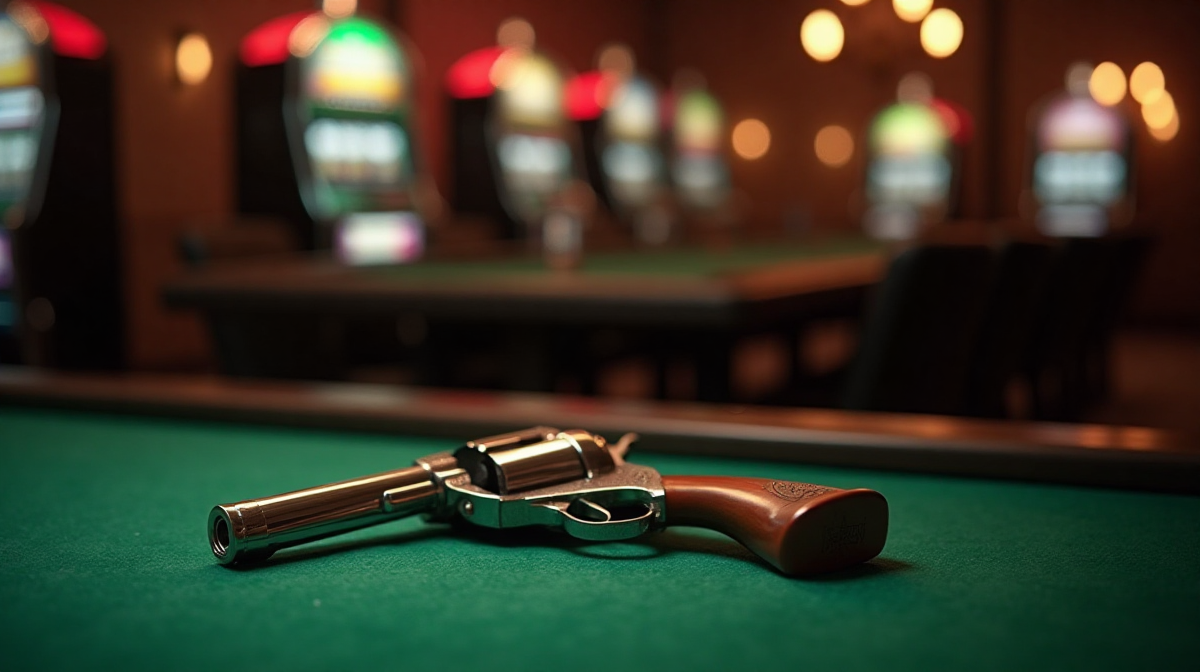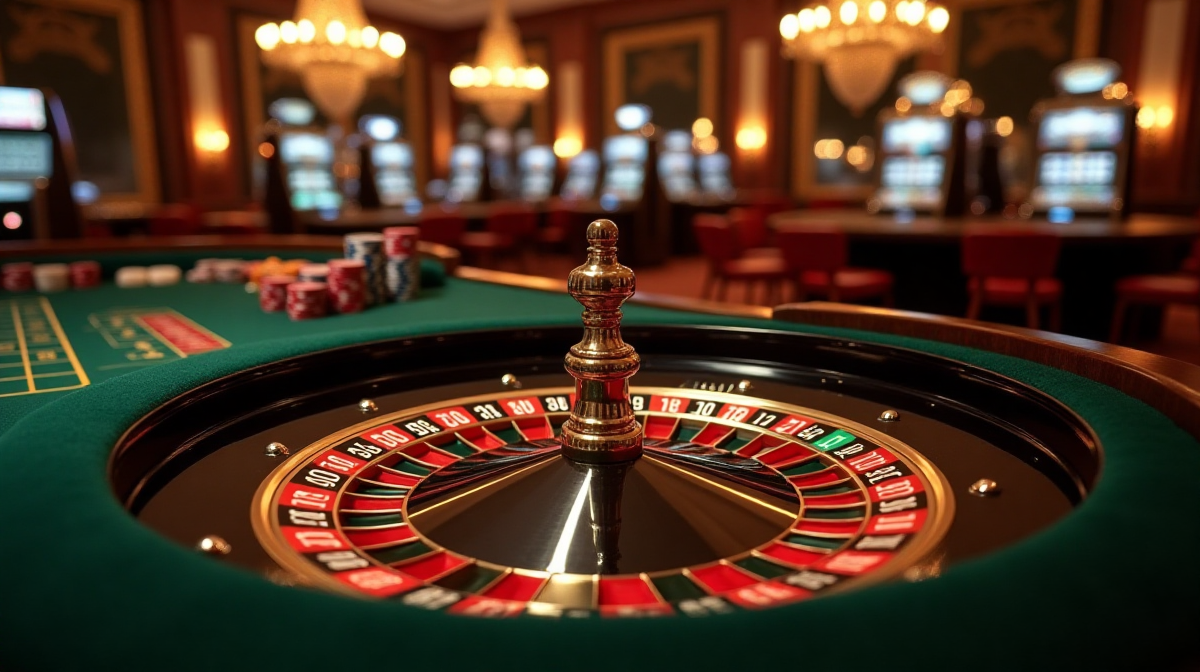Russian Roulette Meaning: Beyond the Gamble
A Brief, Gripping Anecdote or Statistic
The image is chilling: a revolver, one bullet, and a spin of the chamber. While often relegated to the realm of fiction, the practice of Russian Roulette, and the sheer desperation it represents, has a disturbingly real history. It’s a gamble with life itself, a stark demonstration of control relinquished to fate. Even the thrill of a high-stakes gamble, like a quick spin at sportingbet.com, pales in comparison to the finality of this act.
Defining Russian Roulette: The Basic Mechanics & Origins
Russian Roulette is a lethal game of chance involving a revolver with one cartridge loaded into a rotating cylinder. Players sequentially take turns spinning the cylinder, pointing the muzzle at their own head, and pulling the trigger. The goal, terrifyingly, is to not pull the trigger on the loaded chamber. Its origins are shrouded in legend, but are commonly linked to the late 19th and early 20th century.
Thesis Statement
Russian Roulette is a metaphor deeply embedded in modern culture, representing extreme risk, fate, and often, a sense of powerlessness. This article will explore its historical roots, psychological impact, and metaphorical applications.
The Historical Origins & Real-World Accounts
Early Accounts & Legends: Debunking the Myths of Origin
The precise origins of Russian Roulette are debated. Stories circulate of 19th-century Russian officers, facing dire circumstances or seeking a grim test of courage, engaging in the practice. However, concrete evidence from this period is scarce, and many accounts are likely apocryphal, born from sensationalism. It’s important to approach these early tales with skepticism.
World War II & Prisoner of War Use: Verifiable Instances & Motivations
More verifiable instances appear during World War II, particularly among prisoners of war. Faced with imminent execution by their captors, some POWs reportedly resorted to Russian Roulette as a desperate attempt to choose who would face death, or as a final act of defiance. Suicide pacts, born of unimaginable suffering, also fueled the practice. The sheer desperation is a world away from the calculated risk one might take with a wager on sportingbet.
Highlighting Key Historical Cases: Documented Examples & their Stories
Documented cases, though rare, paint a grim picture. Accounts from former POWs and historical investigations reveal instances where the game was used as a perverse method of selection, a way to avoid the agonizing decision of who would surrender and face certain torture. These stories highlight the extreme psychological trauma that drove individuals to such measures.
Distinguishing Fact from Fiction: Separating the actual practice from dramatic portrayals
The dramatic portrayal of Russian Roulette in film and literature often exaggerates its prevalence. While the image is potent, it’s crucial to remember that actual documented cases are relatively infrequent, and often intertwined with extreme circumstances.
The Psychology Behind Russian Roulette: Why Would Anyone…?
Desperation & Hopelessness: Understanding the Mental State
The core driver behind participating in Russian Roulette is often profound desperation and a sense of utter hopelessness. Individuals contemplating such an act typically feel trapped, powerless, and believe they have no viable alternatives. The illusion of control, even in a game of pure chance, can be strangely appealing.
The Appeal of Control: An Illusion of Agency in a Chaotic Situation
In a situation where all other avenues of control have been lost, Russian Roulette can offer a perverse sense of agency. The player, in a twisted way, chooses when to pull the trigger, and thus, when to face their fate. This illusion of control can be particularly strong for individuals who have experienced significant trauma or loss. This is far removed from the controlled environment of a sportingbet login, where outcomes are based on skill and chance, not a direct confrontation with mortality.
Death Drive & Thanatos: Exploring Freudian Interpretations
From a Freudian perspective, the impulse towards self-destruction, termed the “death drive” or Thanatos, may play a role. This isn’t to say that all instances of Russian Roulette are rooted in a subconscious desire for death, but it suggests that a pre-existing inclination towards self-destructive behavior can contribute to the decision.
The Role of Peer Pressure & Group Dynamics
In some documented cases, peer pressure or group dynamics have exacerbated the situation. When faced with a collective crisis, individuals may be coerced or influenced to participate in the game, seeking acceptance or avoiding ostracism.
Risk-Taking Behavior & Addiction: Connecting to broader psychological patterns
A predisposition towards risk-taking behavior and addictive tendencies can also be contributing factors. Individuals with a history of impulsive decisions or a thrill-seeking personality may be more likely to engage in such a dangerous act. The allure of a risky bet, even one found on sportingbet .com, can be seen as a milder manifestation of this pattern.
Russian Roulette as a Metaphor: Beyond the Literal
In Literature & Film: Examining Common Representations
Russian Roulette frequently appears in literature and film as a powerful metaphor for extreme risk, fate, and the fragility of life. The Deer Hunter (1978) is perhaps the most iconic example, depicting the psychological toll of the Vietnam War through a harrowing Russian Roulette scene.
Political & Economic Implications: Using the Metaphor to Describe High-Stakes Scenarios
The metaphor extends beyond individual crises. In politics and economics, “playing Russian Roulette” describes high-stakes scenarios where the potential consequences are catastrophic. Brinkmanship in international relations, risky financial investments, and volatile market conditions can all be framed as forms of Russian Roulette.
Relationships & Risk: Applying the Metaphor to Destructive Relationship Dynamics
The metaphor also applies to destructive relationship dynamics. Emotional manipulation, volatile behavior, and a pattern of escalating risks can be described as “playing Russian Roulette” with someone’s heart and well-being.
Career & Gambles: Risky Career Moves and Their Potential Outcomes
Taking a significant risk with one’s career – leaving a stable job to start a business, for example – can be described as “playing Russian Roulette with your future.” The outcome is uncertain, and the potential for failure is substantial.
The Everyday “Russian Roulette”: Relatable situations involving significant, unpredictable risk
Even everyday life contains elements of “Russian Roulette.” Major surgery, a challenging medical diagnosis, or a significant life change all involve unpredictable risks and a degree of surrendering control to fate.

The Cultural Impact & Continued Fascination
Taboo & Sensationalism: Why the Topic Continues to Captivate and Shock
The topic of Russian Roulette remains taboo and sensationalized, yet continues to captivate and shock. Its inherent danger and the psychological implications are morbidly fascinating. The adrenaline rush some experience with a game of live roulette is a far cry from the terror of this act.
Ethical Concerns of Representation: The Responsibility of Depicting Such a Practice
The representation of Russian Roulette in media raises ethical concerns. Glamorizing or sensationalizing the practice can be harmful and potentially trigger vulnerable individuals. Responsible depiction requires sensitivity and a clear acknowledgment of the devastating consequences.
Russian Roulette in Art & Music: Examining its appearance in various creative mediums
The theme of Russian Roulette has appeared in various creative mediums, from paintings and sculptures to songs and poems. Artists often use the metaphor to explore themes of mortality, fate, and the human condition.
The Rise of “Challenge” Culture & Similar Risks: Connecting to current trends and dangerous fads
The rise of dangerous online “challenges” and fads demonstrates a disturbing trend towards risk-taking behavior, particularly among young people. These challenges, while often less lethal than Russian Roulette, share a common element of recklessness and a disregard for personal safety.

If You Are Struggling: Resources & Help
Recognizing Suicidal Ideation & Warning Signs
Recognizing suicidal ideation and warning signs is crucial. These can include talking about wanting to die, feeling hopeless or trapped, withdrawing from social activities, and giving away possessions.
Where to Find Help: Suicide Prevention Lifelines & Mental Health Resources
If you or someone you know is struggling with suicidal thoughts, please reach out for help. The 988 Suicide & Crisis Lifeline is available 24/7 by calling or texting 988 in the US and Canada. Globally, resources are available through the International Association for Suicide Prevention (IASP).
Supporting Someone in Crisis: Guidance on how to help a friend or loved one
If you are supporting someone in crisis, listen without judgment, express your concern, and encourage them to seek professional help. Do not leave them alone if you believe they are in immediate danger.
Conclusion: A Grim Symbol of Humanity's Darkest Corners
Restating the central argument about the multifaceted meaning of Russian Roulette
Russian Roulette, beyond its literal and terrifying manifestation, serves as a potent metaphor for extreme risk, the illusion of control, and the fragility of human life. It reflects the darkest corners of the human psyche, born of desperation and hopelessness. The thrill of chance, even in something as innocuous as a spin on sportingbet, is vastly different.
Final Thoughts: Reflecting on the enduring power of the metaphor and its relevance in a complex world
The enduring power of the Russian Roulette metaphor lies in its ability to capture the inherent uncertainties and dangers of the human experience. It reminds us that life is often a gamble, and that even in moments of apparent control, fate can play a decisive role.
A Call for Awareness: Understanding risk, mental health, and seeking help when needed
Ultimately, the story of Russian Roulette is a call for awareness – an awareness of the risks we take, the importance of mental health, and the need to seek help when we are struggling.

